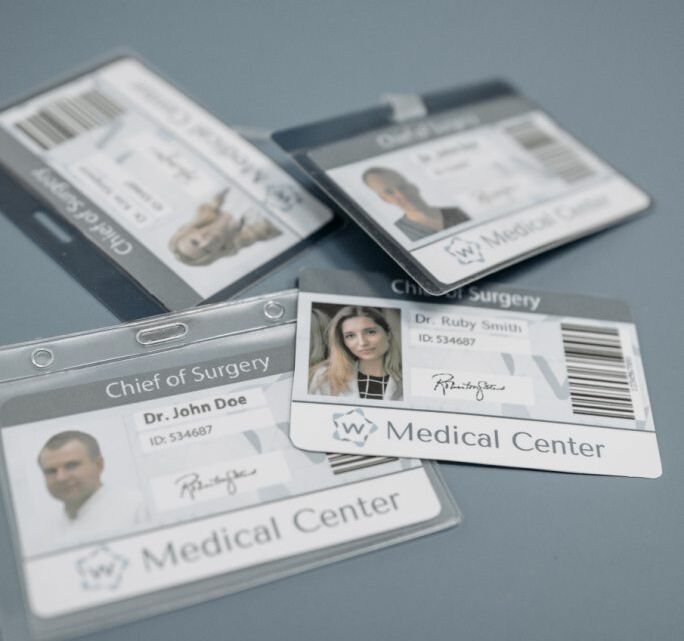
what to do and don’t when your identity stolen?
August 3, 2022
As we go about our lives, we leave a digital footprint behind us. This can include everything from the websites we visit to the way we interact with others online. With so much of our personal information out there, it’s important to be aware of the ways we can protect ourselves from identity theft. In this blog post, we’ll explore some tips and tricks for keeping your information safe.
How to Know If Your Identity Has Been Stolen
It can happen to anyone: you receive a letter from a company or government agency telling you that your personal information has been compromised in a data breach. Or, you might notice some unusual activity on your credit report or bank statements. Perhaps you get a call from a debt collector for a debt you don’t recognize.
These are all signs that your identity may have been stolen.
Identity theft is a serious crime that can wreak havoc on your finances, your credit, and your reputation. It can take months or even years to recover from identity theft, and in some cases, the damage may be permanent.
That’s why it’s so important to be proactive in protecting your identity and to know the signs that your identity has been stolen.
Here are some of the most common signs that your identity has been stolen:
You receive a notification from a company or government agency that your personal information has been compromised in a data breach.
You notice unusual activity on your credit report, such as new accounts or charges you don’t recognize.
You get calls or letters from debt collectors for debts you don’t recognize.
You see withdrawals from your bank account that you didn’t make.
You get bills for products or services you didn’t purchase.
You are denied credit for no apparent reason.
Identity theft is a serious problem, but by being aware of the signs and taking quick action, you can minimize the damage and get your life back on track.
WHAT DO YOU DO IF YOUR identity being stolen
If you think your identity has been stolen, the first thing you should do is contact the three major credit bureaus and place a fraud alert on your credit report. This will make it more difficult for criminals to open new accounts in your name.
Then, file a report with the Federal Trade Commission and your local police department. Keep a copy of the report for your records.
Next, close any accounts that have been opened in your name or that have been tampered with. And finally, change your passwords for all your online accounts.
Taking these steps can help you recover from identity theft and prevent it from happening again.
5 Tips for keeping your information safe online.
It’s no secret that the internet can be a dangerous place. With all of the personal information we share online, it’s important to be vigilant about keeping our information safe. Here are five tips to help you do just that:
1.Use strong passwords.
This may seem like a no-brainer, but it’s important to use strong, unique passwords for each of your online accounts. If one of your passwords is compromised, hackers will have access to all of your other accounts if you’re using the same password.
2.Avoid phishing scams.
Phishing scams are designed to trick you into giving up your personal information, usually by clicking on a malicious link. Be wary of any emails or links that look suspicious, and never click on anything without first verifying that it’s from a trusted source.
3.Keep your software up to date.
One of the best ways to protect your computer from viruses and malware is to keep your software up to date. This includes your operating system, web browser, and any plugins or extensions you’re using. Most software updates include security fixes, so it’s important to install them as soon as they’re available.
4.Use a VPN.
A VPN, or virtual private network, is a great way to add an extra layer of security to your internet connection. VPNs encrypt your data and hide your IP address, making it more difficult for hackers to snoop on your activity or steal your personal information.
5.Be careful what you click on.
This ties in with the previous tip, but it’s worth repeating. Be careful what you click on, even if it looks like it’s from a trusted source. Hackers are getting increasingly sophisticated in their ability to create fake websites and emails that look legitimate, so it’s always best to err on the side of caution.
By following these tips, you can help keep your information safe online. Just remember to be vigilant and take precautions against the ever-evolving threats that exist on the internet.
There are many ways to protect against stolen identity. The best way to protect yourself is to be aware of the potential risks and take steps to minimize your exposure. You can also protect yourself by monitoring your credit report and being alert for any suspicious activity. If you believe you have been a victim of identity theft, you should report it to the proper authorities immediately. By taking these steps, you can help protect yourself against stolen identity.









